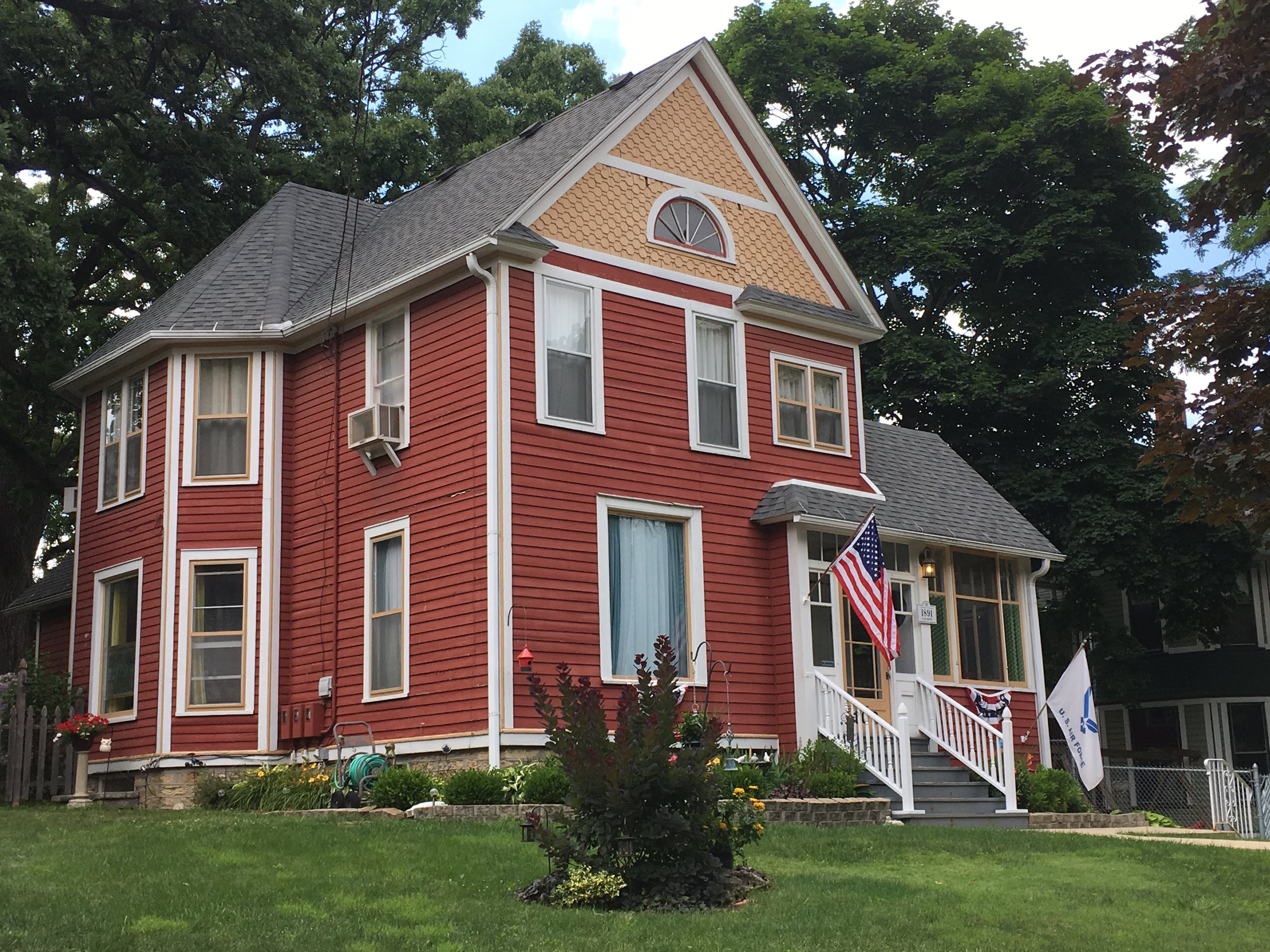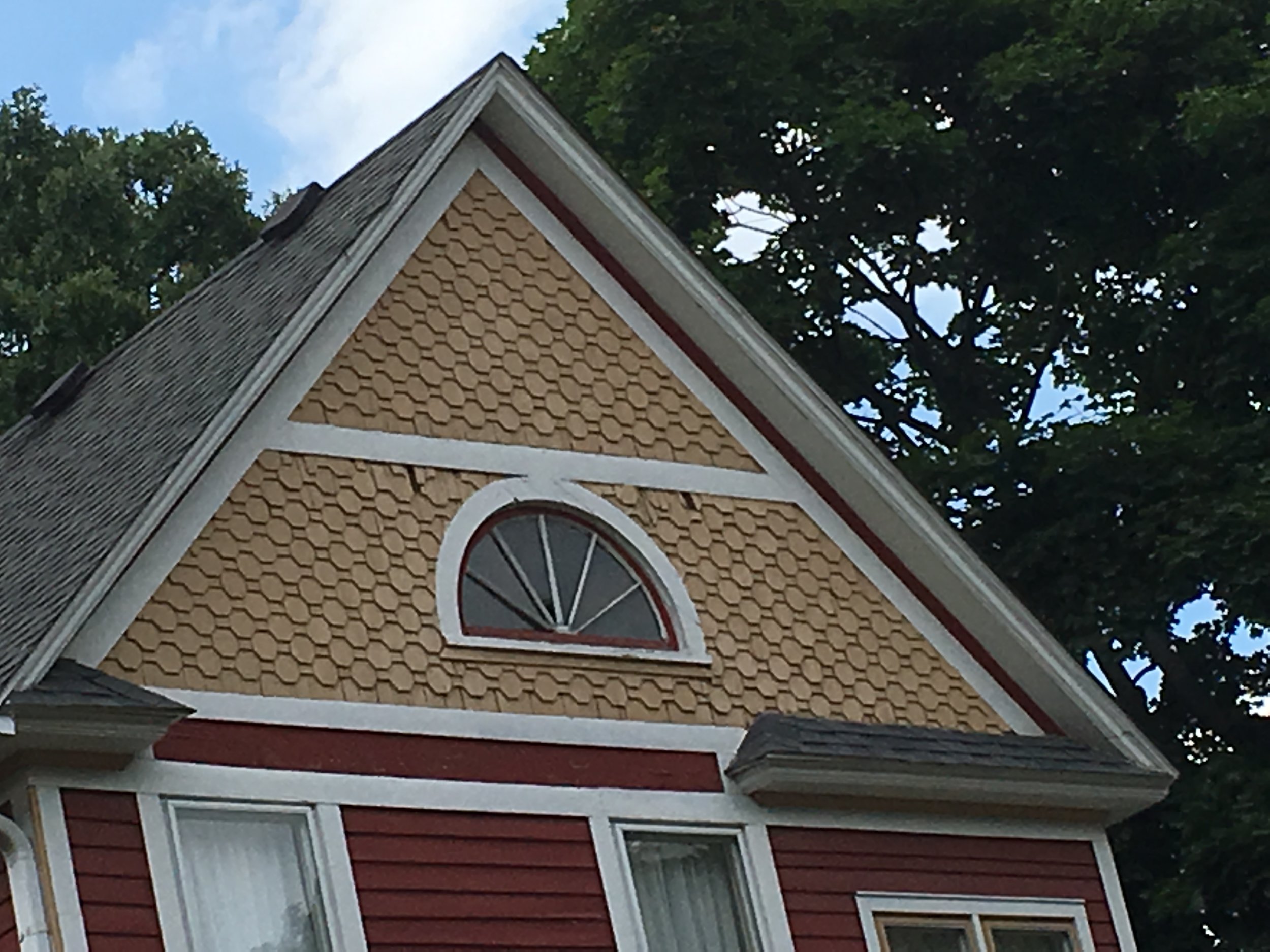108 CRIGHTON AVENUE
HISTORIC SIGNIFICANCE
Many of the homes on Crighton Avenue were built up in a short time period. Along with 102 and 105, 108 was mentioned in a December 1891 article in the Elgin Daily Courier that detailed all the homes built in the past year, with 108 Crighton listed as being built for $2,700 by Stephen Smith for R. R. Hunt. After Elgin changed its address numbering system for the third and final time in 1894, 60 Crighton officially became 108 Crighton.
Robert Ross Hunt came to Elgin in 1891 from New York City, and became the superintendent of the Elgin Windmill Company before moving over to the Elgin Watch Factory to work as a machinist for the next 28 years. He was a veteran of the Civil War and an active member of the local Grand Army of the Republic, which he joined shortly after moving to town. He was also heavily involved with the local Masonic Lodge later becoming a Master in Batavia Masonic Lodge. In 1933, he was working on the outside of his house when he fell off his ladder and sustained a life-ending injury.
After his passing, Hunt's four children inherited the home. One of Robert's sons, Edward, worked for the Ford Motor Company in Detroit, Michigan. Through a quit claim deed, Edward's wife, Ida, became the sole owner of the property. Ida remained the sole owner until selling the property to LeRoy Rehberg.
ARCHITECTURAL SIGNIFICANCE
The house at 108 Crighton Avenue has some Queen Anne influence seen in elements like the fish scale shingles in the front gable, strong asymmetry, and steeply pitched cross-gable and hipped roofs. Vertical and horizontal banding around the house, simple window surrounds, and a two story bay window point to some Italianate influences. Among the Queen Anne features is the "Painted Lady" style which included at least five colors for the home's exterior paint.
TIMELINE OF PREVIOUS OWNERS
Sources: 2003 Heritage Plaque Application; Audio: TextAloud





